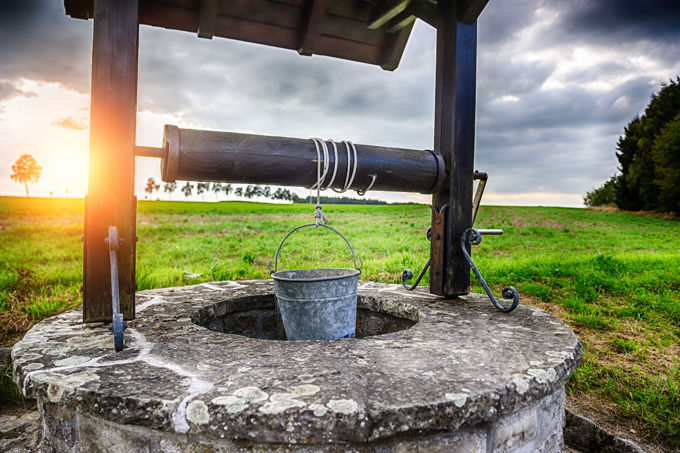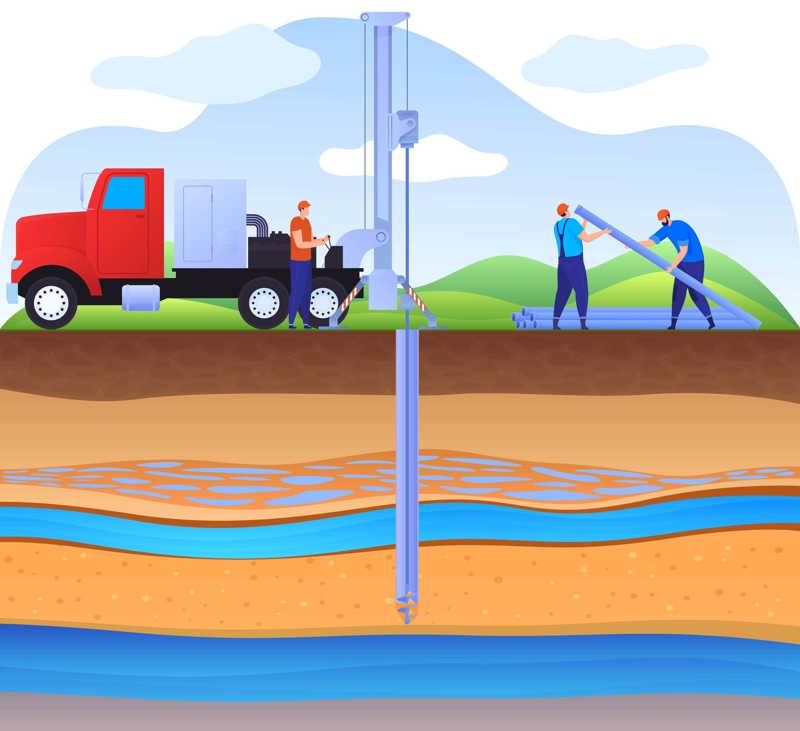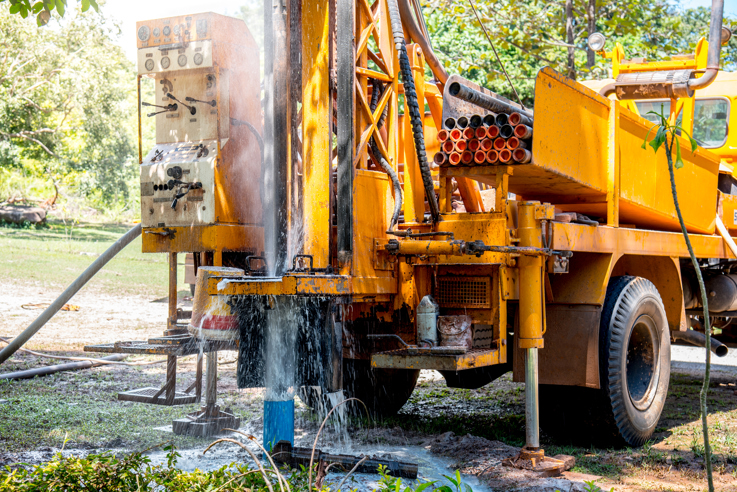
Virginia Groundwater Law and Water Use Restrictions
Virginia Groundwater and Its Many Uses
Last month I blogged about surface water withdrawal. In this article I focus on withdrawal of ground water for consumptive and nonconsumptive uses.
A 2016 Report to the Governor and the General Assembly of Virginia, drafted by the Joint Legislative Audit and Review Commission, titled Effectiveness of Virginia’s Water Resource Planning and Management, explains that most water used in Virginia (surface water and groundwater) is withdrawn and used for power generation, drinking water, and manufacturing. Most of those withdrawals are from surface water sources, such as rivers, streams and lakes. Groundwater is the source for only about 10% of consumptive withdrawals in Virginia. Groundwater exists below ground in a complex network of aquifers. Groundwater withdrawals that cause underground water levels to drop too low can permanently reduce an aquifer’s capacity to store water. Another of my articles explains that, near the coast, declining water levels in Virginia aquifers can result in saltwater contamination of drinking water wells along with land subsidence, which aggravates coastal flooding brought on by sea level rise.

Shutterstock: Igor Deyka
Virginia State Water Control Law: A System of Unrestricted Usage
In the two centuries before the Virginia General Assembly enacted any laws on the subject, the Courts in Virginia regulated ground water usage through the “common law”. In the typical case, landowner A lost the use of the spring that supplied water for her home and farm due to the action taken by a neighbor, landowner B. In many of these cases landowner B was a coal mining enterprise that disrupted ground water flow, often by setting an explosion or excavating the earth. Another scenario that altered ground water flow arose when a spring on the land of landowner A ran dry because landowner B began pumping two-million gallons of water per day out from his quarry. The Virginia Courts rarely imposed liability on landowner B under any of these scenarios. The common law encouraged people to act as they pleased on their own land, free of obligation to sustain the groundwater flowing to their neighbor.
Virginia Water Law and The General Assembly Acts
In 1973, the General Assembly made an initial attempt to place at least some minor limits on the common law free-for-all. It tightened those limits in 1992 because, in the words of the 1992 statute, “the continued, unrestricted usage of groundwater is contributing and will contribute to pollution and shortage of ground water, thereby jeopardizing the public welfare, safety and health” (Va. Code §62.1-254). The Ground Water Management Act of 1992 is codified at Va. Code §62.1-254 to 270. The statute empowered the Virginia Department of Environmental Quality (DEQ) to oversee a regulatory program that would, among other things, designate ground water management areas and regulate ground water withdrawal in those areas through a DEQ-administered permit program. The DEQ regulations are found at 9 VAC 25-600-10 to 20 and 9 VAC 25-610-10 to 390. The DEQ website outlines the permit application process.

Shutterstock: Theeraphong
Groundwater Regulations: Management Areas and Exemptions
A person may freely withdraw ground water unless located in a ground water management area and the withdrawal is not covered by one of the available exemptions.
DEQ designated two ground water management areas. Both are located in eastern Virginia. They are known as the “Eastern Virginia Groundwater Management Area” and the “Eastern Shore Groundwater Management Area”. The specific boundaries for each are described at 9 VAC 25-600-20. Although persons outside of the two ground water management areas may withdraw ground water free of oversight, save that provided by the Courts under the common law system, the Ground Water Management Act of 1992 authorizes the DEQ “to require any person withdrawing ground water for any purpose anywhere in the Commonwealth, whether or not declared to be a ground water management area, to furnish to the Board such information with regard to such ground water withdrawal and the use thereof” (Va. Code §62.1-256(4)).
The Act lists the exemptions at Va. Code §62.1-259. The principal exemption is the one that requires no permit for withdrawals in a ground water management area of less than 300,000 gallons per month. There is an important exception to this exemption: Va. Code §62.1-258 requires any person who constructs a “private well” in a ground water management area to register the well with the DEQ within 30 days of completion of the construction even though the well is exempt from the permit requirement (because, for example, withdrawal from that well is beneath the 300,000 gallon per month threshold). For this reason, a person living in Virginia Beach (located in the Eastern Virginia Groundwater Management Area), who installs a ground water well to irrigate her lawn, is not required to obtain a groundwater withdrawal permit but is required to register the well with the DEQ.
Virginia Groundwater Withdrawal Permit Process
9 VAC 25-610-94 lists the lengthy number of items that are required in the application for a groundwater withdrawal permit. The prudent applicant will arrange a pre-application meeting with the DEQ prior to application submission. DEQ often requests additional information after submission of the application. The public will be notified when the process reaches the stage where DEQ has released a draft permit (9 VAC 25-610-250). Unless the information submitted in the application qualifies for protection as a “trade secret”, the information in the application “shall be available to the public” (9 VAC 25-610-260). Members of the public may submit their comments on the draft permit to the DEQ and the DEQ may, if it determines such action is warranted, hold a public hearing on the draft permit (9 VAC 25-610-270). It typically takes about two years for the DEQ to issue a permit decision from the time when the application is submitted to the DEQ, but a longer time is possible in the case of a contentious application.
A person who believes that the DEQ improperly issued a ground water withdrawal permit may file a legal action in the appropriate Circuit Court to challenge the issuance of the permit.
More About Virginia’s Underground Water Rights
Contact Jim Lang if you would like to see him publish more information on the regulation of ground water usage in the state of Virginia. Of course, you can always contact Jim for his advice and assistance in connection with needs specific to your particular situation.
